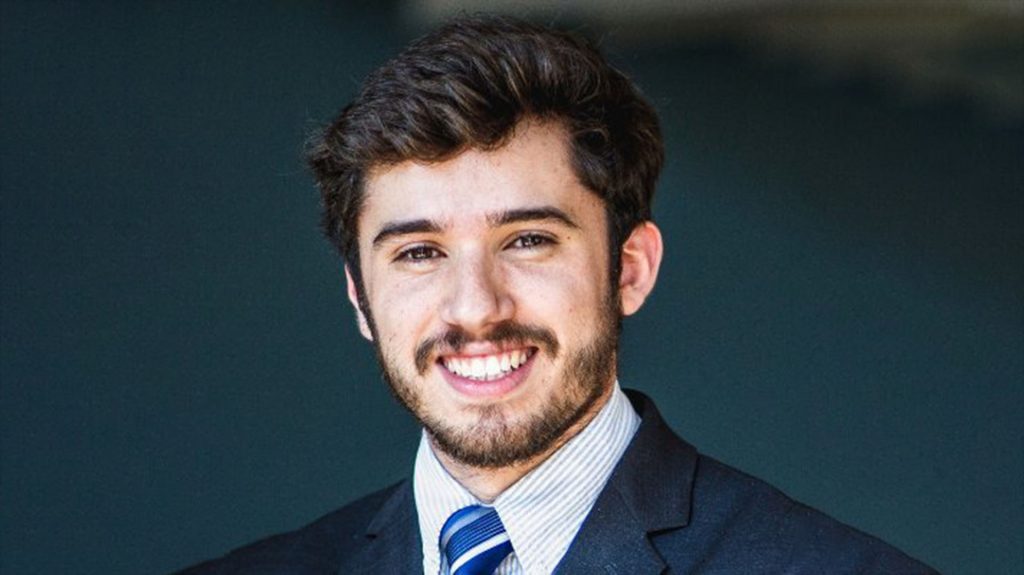In a move that signals a major leap forward in generative AI, OpenAI has quietly rolled out ChatGPT-5, its most advanced model to date….
This founder uses fintech to speed up Tunisia

One of a hopeful generation of entrepreneurs that lived through Tunisia’s 2021 revolution as a teenager, fintech startup founder Anis Kallel believes in the power of entrepreneurship to reshape the world.
That is also why Kallel, who co-founded Kaoun in 2018, returned to Tunisia to start his company after studying and working abroad.
“The marginal impact of one person in one place doing the right thing at the right time is so much more than what that impact could be in more mature markets like the U.S.,” he said.
“If you build the right thing and find the right deployment strategy and operations around it, you have the ability to impact hundreds of thousands of lives, and structure industries in the way that can shape future generations to come.”
Kallel was talking to Ventureburn in a fireside chat as part of AfricArena’s North African Founders Bootcamp in his home town of Tunis. The bootcamp is part of the AfricArena North African Summit, which brought founders, investors and other ecosystem players from all over the world to the North African country this week.
The revolution happened when he was 16, and by the time he turned 18 Kallel was convinced that he would start a company someday.
“I definitely did not come from an environment where entrepreneurship was a thing. Think traditional Arab parents: focus on school, get good grades, then go to university. You have all the choices in the world as long is its engineer or doctor,” he jokes.
He considers his ambition to change the world a byproduct of the revolution. “Naturally, around high school we just found that we had all the choices in the world. We started doing activities and clubs and just doing what we’re truly interested in, because we felt like at that moment we could.
“And that fueled this want or need to see something missing and then start it.”
Kallel co-founded Kauon (“universe” in standard Arabic) with Nebras Jemel and Rostom Bouazizi. Having started with two angel investors in 2018 and 2019, Kaoun raised an undisclosed amount in seed funding in 2021 from Musha Ventures, a United States-based, Africa-focused micro VC and angel fund.
Red tape slowing fintech
The company’s first product, a financial super-app called Flouci, was launched after a delay of more than two years. The app lets people open free accounts directly via smartphone. It gives them access to payments, transfers and value-added services like phone top-ups and bill payments.
“How we imagine it, once you take people from being unbanked with no formal relationship with financial services, to accessing all of these services, you can imagine a faster economy, more goods and services being exchanged, and overall financial inclusion in its true sense.”
The delay to market was caused by local central bank regulations, which stymied the startup’s efforts. Prohibited from trading during this extended period by red tape, the team worked on solving technical problems and lobbying for regulatory approvals to be sped up.
“I wouldn’t wish those first two-and-a-half years on my worst enemy,” Kallel recalls. If he didn’t have a co-founder to rely on during those months, he says, the odds are that he would have given up on the company.
This is also why his response is very cautiously positive when asked about Tunisia’s much-lauded Startup Act, which created a series of incentives and other measures to bolster startup growth in the country.
His response echoes the views of a number of the early-stage founders who listened to him share his story at the AfricArena bootcamp: The Act and the country’s other initiatives to fast-track tech startups very often still gets ensnared in a very traditional and slow-moving bureaucracy.
The Startup Act helped, Kallel admits, but the lives of founders are still frequently complicated by misalignment. “North Africa is heavily regulated with more of a conservative mindset when it comes to new things. It’s heavy on the authorisation side of things. Everything takes longer than you anticipate.”
Regulations tend to change frequently, with amendments coming seemingly out of nowhere, Kallel says. He recalls once having to scrap six months of work and asking his team to start over.
“It has more of a mental toll than anything else, especially for young teams trying to do things very quickly. Any setback like that can be difficult to manage.”
ALSO READ: Fintech revolution: Interoperability can empower Africans

